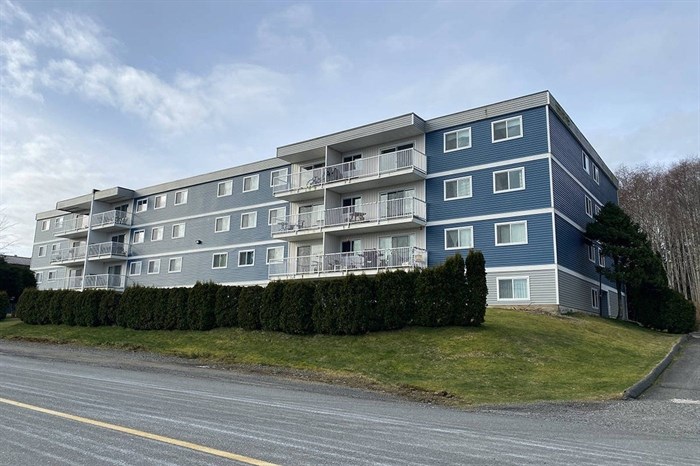
Older rental apartments are prime candidates for renovations, and could result in lost affordable housing stock.
Image Credit: Zoë Ducklow, Local Journalism Initiative
March 03, 2021 - 3:30 PM
Rental tenant advocates say the the province’s new legislation to stop false renovictions is good, but doesn’t go far enough to protect existing affordable housing stock nor address “exponential” rate increases over the last few years.
The B.C. government announced March 1 it would extend the freeze on rent increases, and proposed a new policy that would have landlords to apply to the Residential Tenancy Branch to be able to evict people for renovations. They would have to show renovation permits, demonstrate that renovations are significant enough to require vacancy and prove that renovations are necessary.
Currently, there’s no onus to prove renovations are significant or actually required, allowing opportunistic landlords to flip suites and jack up rent for the new tenant after a few superficial improvements.
The B.C. Tenant Resource and Advisory Centre is excited about the change, saying it will help curb illegal renovictions, which they think happen often, thought it’s impossible to track.
But the new legislation, which if approved will go into effect July 1, does very little to protect affordable rental stock, said Zuzana Modrovic, a lawyer with TRAC.
“A lot of the affordable rental stock is in buildings that are aging, where renovations are likely needed. When a landlord does those renovations, they can charge whatever they think the market will bear,” she said.
READ MORE: B.C. to extend rent freeze through 2021, increase protections against 'renovictions'
The task force’s solution also fails to address “exponential rate increases” over the last few years, and it doesn’t help people who fell behind on rent during the height of the pandemic.
“At the start of this emergency, we were told by Premier John Horgan and Selina Robinson, who was the housing minister at that time, that nobody would lose their housing due to COVID-19. They have not kept that promise. People are now losing their housing because they can’t afford rent, never mind the repayment of missed rent, and there’s no protection for them,” Modrovic said.
Now tenants are facing paying regular rent, plus a repayment plan to make up missed rent. The province has said landlords must give renters until August 2021 to repay rental debt owed from the first five months of the pandemic.
“Essentially that’s just like a temporary rent increase. They have to pay an additional $200 or $300 a month, or more.”
A ministry spokesperson said B.C. has the second lowest rate of rent arrears in the country, and that there has not been a significant increase in the number of disputes in recent months.
TRAC has been asking the government for rental arrears forgiveness across the province, or at the least another eviction freeze. The government initially said no one could be evicted for not paying rent due to COVID-19, but that ban lifted July 30.
Landlord BC, an association for landlords was also included in the task force, said they welcome the change but said the Rental Tenancy Board will have to handle the application process efficiently.
— This story was originally published by the North Island Gazette.
News from © iNFOnews, 2021